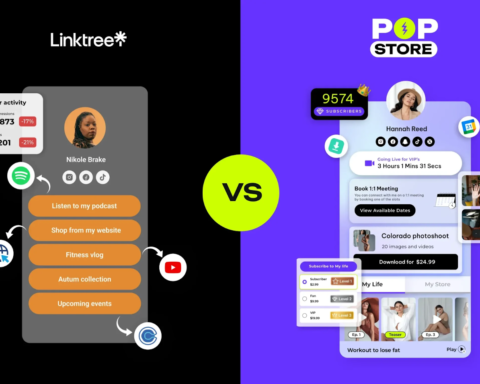What Are Lemon Laws?
Regulations known as “lemon laws” relieve buyers of automobiles that fall short of performance and quality requirements. These laws ensure that consumers are not stuck with defective vehicles. Being informed about lemon law protections is essential, especially if you need a Lemon Law attorney in Los Angeles. These laws act as a shield against manufacturers that fail to uphold the quality of their products.
The necessity of lemon laws becomes clear when facing recurring vehicle problems. Consumers may spend thousands on what they believe to be a reliable vehicle, only to be confronted with persistent issues. Lemon laws highlight the importance of these legal safeguards by avoiding forcing buyers to pay for damaged cars. By protecting the consumer, these laws uphold the integrity of the automotive market.
How Lemon Laws Work
If an automobile is declared a “lemon,” the manufacturer must reimburse the customer or replace the vehicle. Typically, a vehicle must undergo several repair attempts without success before it is considered a lemon. For example, in California, if a car has been in the repair shop for more than 30 days or has had four or more unsuccessful repair attempts, it may be eligible under the lemon law protections. This threshold ensures that consumers have given the manufacturer a fair chance to rectify the problem before seeking replacement or refund.
Steps for Determining a Lemon
- Multiple repair attempts for the same issue: The vehicle may qualify as a lemon if the same mechanical or safety issue persists despite repeated repairs.
- Extended time in the repair shop: A vehicle that spends excessive time in the shop, typically more than 30 days cumulatively, within the warranty period is likely a lemon.
- Significant defect affecting vehicle value or safety: Defects that severely impair the vehicle’s use, value, or safety are clear indicators of a lemon.
Common Issues Covered By Lemon Laws
- Engine issues: Persistent engine problems that affect performance and reliability are common grounds for a lemon claim.
- Transmission problems: Transmission failures can render a vehicle undriveable, warranting protection under lemon laws.
- Brake failures: Defective brake systems pose serious safety hazards and are a frequent focus of lemon law cases.
- Electrical system defects: Faulty electrical systems can lead to many issues, including battery drain and malfunctioning controls.
- Steering malfunctions: Problems with steering mechanisms can be life-threatening, making them a critical concern under lemon laws.
These issues can severely undermine a vehicle’s reliability and safety, making the protections offered by lemon laws essential for consumers. By addressing these defects, lemon laws help maintain consumer trust and satisfaction in the auto industry.
State Variations in Lemon Laws
While the general principles of lemon laws are consistent across the U.S., there are variances in how they are applied. For instance, New York requires only two repair attempts for a serious safety defect, whereas other states might have more lenient requirements. It’s imperative to know your state’s specific laws. For more information on your state’s lemon laws, you can refer to resources such as Nolo. Understanding these variances helps you navigate the claims process more effectively and ensures you are fully aware of your rights.
Understanding these subtleties will help you prepare to make a claim and ensure you are paid or replaced as you should. Each state has its own set of regulations, timelines, and criteria, which can significantly impact the outcome of your claim.
How to File a Lemon Law Claim
Filing a lemon law claim involves several critical steps:
- Document all repair attempts and communications with the dealer: Keep detailed records of all service visits, including receipts, work orders, and technician notes. This documentation is crucial for substantiating your claim.
- Submit a formal complaint to the manufacturer: After repeated failed repairs, submit a written complaint to the vehicle manufacturer, stating the issues and demanding a remedy under the lemon law.
- Allow the manufacturer a final repair attempt if required: Some states require you to give the manufacturer one last chance to fix the problem before proceeding with a lemon law claim.
- Seek arbitration if necessary: Many states offer arbitration programs that provide a quicker resolution than going to court. Participate in this process if available and recommended.
- If unresolved, consider taking legal action: If the manufacturer fails to comply, filing a lawsuit with the help of a lemon law attorney may be your best option.
Proper documentation and following the outlined steps increase the likelihood of a successful claim and alleviate the hassles of dealing with a defective vehicle. Being thorough and persistent can effectively leverage lemon laws to your advantage.
When to Seek Legal Help
A successful lemon law lawsuit depends on knowing when to get legal counsel. If you’ve followed all necessary steps and your vehicle remains defective, it may be time to contact an attorney specializing in lemon laws. A skilled lawyer can help you navigate difficulties and defend your rights. For more advice on when to seek legal help, check out this Consumer Reports article. Legal professionals can help you grasp the nuances of lemon laws, represent you in negotiations or court, and gather the necessary documentation.
Resources and Conclusion
Lemon laws serve as a vital protection for consumers against defective vehicles. You may prevent the anxiety and financial burden of becoming the owner of a lemon by being aware of your rights and taking early measures. For further details, refer to resources like Edmunds and your state’s Department of Consumer Affairs website. With these invaluable materials, you can better navigate the legal environment by learning about lemon laws in detail.
In conclusion, lemon laws are essential for ensuring consumer protection in the automotive industry. Stay informed about your rights and know when to seek professional advice to maximize your chances of a successful claim.
Stay informed with the news and updates on essentialtribune








